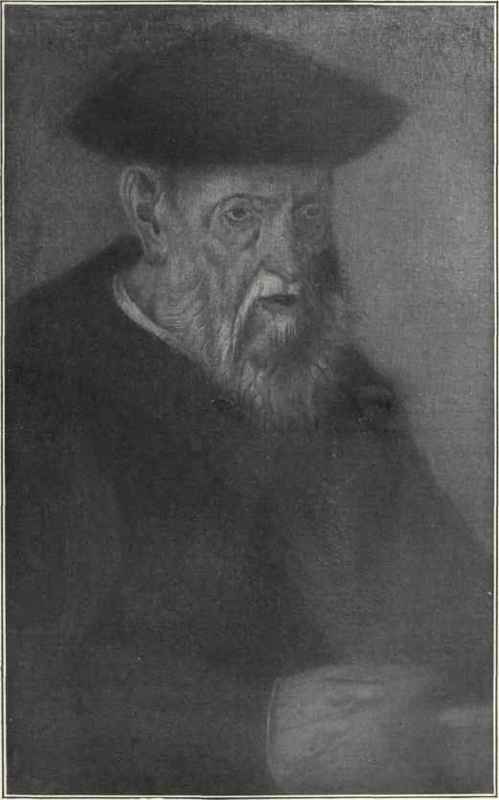
By Tom Frascella
Andrea Doria is considered one of, if not the greatest naval officer and strategist of the 15th thru 17th centuries. In addition, he was an astute politician, international negotiator and gifted organizer who declined the opportunity to rise to either King or Dictator of his native Genoa in favor of establishing one of Europe’s first Republics.
Andrea Doria was born in Oneglia a member of the powerful Genoese Doria family in 1466. He was orphaned at an early age and became a soldier of fortune, serving first as a papal guard and then in the service of several Italian princes.
In 1503 he became a naval hero in Genoa by helping drive the French from the city. Thereafter, he led the Genoese naval fleet in the Mediterranean for a number of years frequently clashing with the Turks and Barbary pirates in the Eastern Mediterranean.
Eventually, the city of Genoa came back under the control of the French monarchy but was lost to the armies of the Holy Roman Emperor Charles of Austria and Spain in 1522. In 1524 the French King Francis I enlisted Doria’s services as captain-general of his fleet. Doria is credited with leading the naval relief of the French port city of Marseille which was being besieged by Charles’ Imperial forces. His naval command and connections with the elite of Genoa also helped oust the Austrians and deliver Genoa back under French control.
Doria became dissatisfied by his treatment under the French, and switched sides forming an alliance with Austria/Spain and the Holy Roman Emperor Charles. With the alliance formed Admiral Doria led the Genoese fleet back to the city driving the French out. A master politician Doria was permitted by the Holy Roman Emperor to establish an independent Republic of Genoa under Imperial protection. Admiral Doria with the support of the Emperor could have promoted himself as either Genoa’s King or Dictator for life. However, he chose to establish a Republican Constitution dividing control of the city among a council of 28 powerful merchant noble families or Alberghi. Among those 28 families were the Doria, Grimaldi, Serra, DeMari and Pallavicini clans to name a few. Admiral Doria accepted the position of “Perpetual Censor” over the council and from that position exercised a dominant position over the Alberghi and the affairs of Genoa for the rest of his life. The Alberghi were the most powerful of the noble merchant families of Genoa. Combined, their mercantile interests stretched throughout Europe and would eventually reach worldwide. The clans were fierce commercial rivals but often exhibited shifting alliances consummated with inter-family marriages.
During his Imperial reign Charles found Admiral Doria’s naval skills invaluable in his continued conflict with the French. As imperial admiral Doria led the fleet in several successful campaigns against both the French and the Ottoman Empire and helped extend Charles authority over the whole of the Italian peninsula. Among his many rewards for his service to Emperor Charles, Admiral Doria was given the southern Italian county of Melfi in 1538. In an interesting act of self indulgence he assumed after the appointment of the county the title “Prince of Melfi”. Essentially, he treated the county as his personal Principality. Melfi was regarded as little more than a revenue producing investment to be administered by an absentee landlord. At the time of Doria’s takeover in the mid 1500’s the county of Melfi was immediately adjacent to the county of Balvano in which San Fele was located. The Doria family influence in the Vulture region therefore dates back to 1538.
Although Admiral Doria in 1538 was 72 years old Pope Paul III convinced him to lead an Imperial fleet augmented with the fleet of Venice and the Maltese Knights against the fleet of the Ottoman Empire who were expanding in the Eastern Mediterranean. This conflict ended in the disastrous defeat of the European navy at the battle of Preveza in 1538. The Ottoman Empire’s navy would then dominate and expand their control over the Eastern Mediterranean Sea for the next 33 years.
Despite his advanced age and his defeat at the hands of the Turkish fleet in 1538 Admiral Doria continued to lead both the complex politics of Genoa and actively lead the Genoese army and navy in additional engagements against the Ottomans, the Barbary pirates and French until the year 1555. In 1555 at the age of 89 he finally relinquished active command of the fleet to his great- nephew Giovanni Andrea Doria but he continued to serve and actively participate in Genoese politics as Censor well into his nineties.
Admiral Doria had no children and left his titles and inheritance to his great-nephew and adopted son Giovanni, including the title and lands of the county of Melfi. Through succession this branch of the Doria family inter-married with the powerful Spanish-Italian Pamphilj family giving rise to it being known as the Doria-Pamphilii branch of the Doria family. The wealth and prestige of this branch was enormous through the centuries and among its descendants is included Pope Innocent X. The family retained many titles including Prince of Melfi and continued as Counts and absentee landlords of the County of Melfi into the 19th century. Over the course of the three centuries of over-lordship the County of Melfi expanded through purchase of many of the adjacent territory of the County of Balvano. San Fele became a part of the Doria family county holdings in the year 1613.
Many of the Alberghi families of Genoa arraigned political alliances and marriages not only among themselves but also throughout the noble houses of Europe. Many noble and wealthy/politically connected families through the centuries in Europe came to be connected to the Alberghi clans. The complexities of these family inter-relationships had a significant influence on European history for hundreds of years.